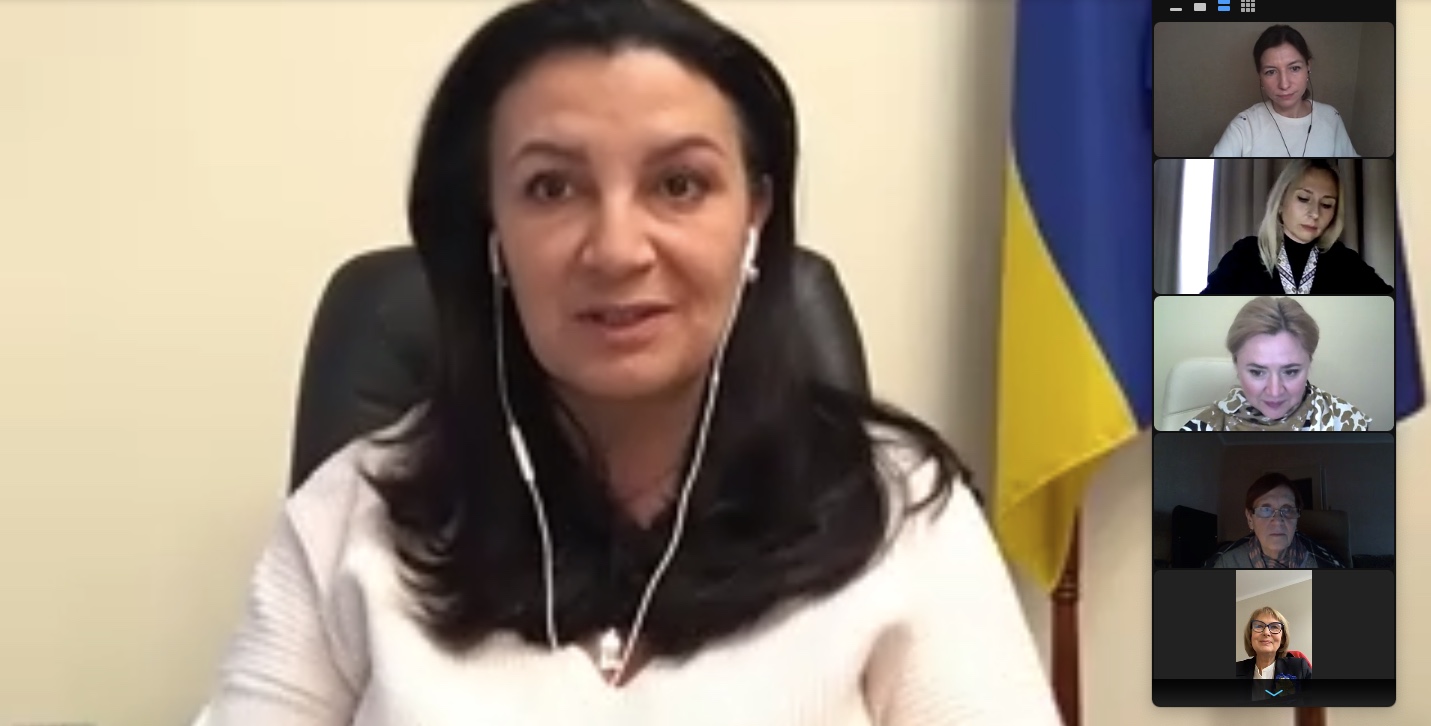
Ivanna Klympush-Tsintsadze noted that today, unfortunately, there is no equality of positions in diplomacy held by women and men. “Probably, such equality has not been achieved yet anywhere in the world, except for the level of senior leaders of the UN. However, we see an increase in the number of women, including in the diplomatic service in Ukraine. This is a positive trend that, in my opinion, will improve the effectiveness of Ukrainian foreign policy,” said the Chair of the Committee.
According to her, the world has reached a critical point of bifurcation. Not only democratic principles and values are under threat, but also the state of Ukraine, fighting for its independence and survival, as well as the survival of civilisation in general. International institutions have proven unable to fulfil their functions in the face of real global threats. “Our most important tasks, both for diplomacy and internal transformations, are progress towards membership in the EU and NATO. Moreover, we have to ensure that the West, in its decisions and actions, relies on the politics of values and does not act reactively. Someone may want to trade our territories in exchange for 'peace' or give us limited military aid to keep us going but not allow us to win the war. Or they may want to apply sanctions in a way that they do not suffer much from the sanctions pressure. We must address attempts to sit on two chairs, balancing between values and interests,” emphasised Ivanna Klympush-Tsintsadze. According to her, conducting business with Russia, the West turned a blind eye to its aggressive policy.
Another challenge for diplomats, according to Ivanna Klympush-Tsintsadze, is war fatigue among Western partners: “They are more tired than we are, who live every day under attacks, losing our loved ones, worrying for our children, relatives and defenders.” Fighting this fatigue, she said, will be even more difficult next year because of the range of elections around the world. “This is an additional challenge for us because we see how right-wing and left-wing radical movements are raising their heads. Attention to the war in Ukraine is fading. Therefore, it is important to find arguments and approaches that will allow us to reach various societies,” said the Chair of the Committee.
According to her, women can be the voice of additional beliefs and reasons in politics and diplomacy. “Quite often, we form our reasons differently, based on our experience, including personal one. In many cases, it works much more effectively than purely rational arguments,” emphasised Ivanna Klympush-Tsintsadze. At the same time, she is convinced that Ukraine's foreign policy needs to be reviewed. Emotional, reflective politics, as in 2022, do not longer work. “I would like women in Ukrainian diplomacy to contribute to our success,” concluded the Chair of the Committee.
More posts by topic
“All publications”
23 July 2025 11:37
11 July 2025 11:31
07 July 2025 11:24
29 July 2024 09:44
24 July 2024 09:46
15 July 2024 10:28
11 July 2024 10:30
09 July 2024 10:07
28 June 2024 10:41
22 June 2024 10:49